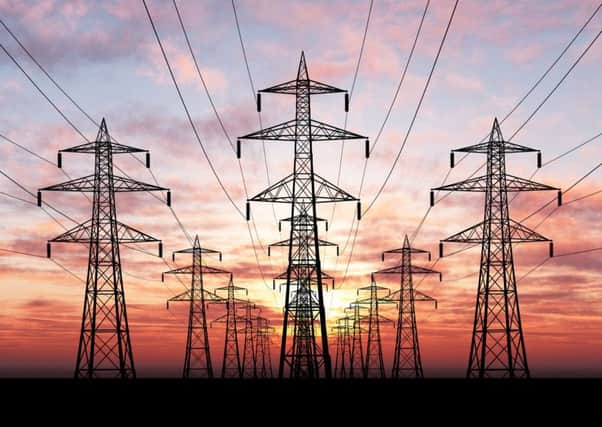Derek McCulloch: Don't let Brexit lead to disconnect from energy investment


To date, such fears have not come to pass. However, economic and political uncertainty continues and as a result the UK and Scottish Government have each committed to large infrastructure spending programmes, such as the recent announcements on high speed rail.
The truth is that – whatever the outcome of Brexit negotiations, a reignited independence campaign or global competition – infrastructure projects will be a necessary part of both governments’ economic policies over at least the next decade as each looks to invest in domestic growth and jobs to ensure stability.
Advertisement
Hide AdAdvertisement
Hide AdMany sectors in Scotland and the UK could argue forcefully for a share of any investment. However, each government should strongly consider energy as a key area. Investing in our energy infrastructure is not only a good economic choice, but a necessary one if we are to meet climate change obligations, increase energy security, create jobs, green growth and increase international competitiveness.
Beyond current EU targets, Scotland is proposing a 50 per cent target of all heat transport and electricity energy needs to be met by renewables by 2030. It has the skills and vast renewable resources to make achieving these targets more than possible. While Brexit may not directly affect domestic policy on the need for targets, the methods of achieving them may need to change.
If targets are to be met they must be supported by modern infrastructure.
At the local level, investment could reduce barriers to grid connection faced by developers. The renewable energy sector is already attuned to low, no or alternative support mechanisms to encourage private investment in production. Reducing these costs could encourage more development and therefore more energy production.
At the national and international level, investment should be channelled towards removing constraints within the current and developed systems, particularly in remote areas and islands, towards local smart grids and interconnectors, the network of cables and pipelines which allow surplus energy to be exported to where it can be used.
Currently, the EU has set a target for member states to have electricity interconnections equivalent to 10 per cent of national generation capacity by 2020.
After Brexit, the commitment to this vital aspect of the energy supply will be all the more crucial.
If we do not ensure that we have the technology and skills to make us competitive in renewable energy, a real opportunity to be at the forefront of energy will be lost, as will all the economic advantages which come with that expertise. We should not ignore the importance of this infrastructure.
Derek McCulloch is head of energy at Gillespie Macandrew.